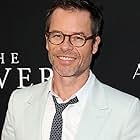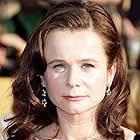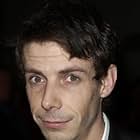A lawman apprehends a notorious outlaw and gives him nine days to kill his older brother, or else they'll execute his younger brother.A lawman apprehends a notorious outlaw and gives him nine days to kill his older brother, or else they'll execute his younger brother.A lawman apprehends a notorious outlaw and gives him nine days to kill his older brother, or else they'll execute his younger brother.
- Awards
- 14 wins & 30 nominations
- Director
- Writer
- All cast & crew
- Production, box office & more at IMDbPro
Storyline
Did you know
- TriviaIn a 2018 interview, Guy Pearce said that this is his favorite of all of the movies he's ever done.
- GoofsAlthough the story takes place in the 1880s, Jellon sings "Danny Boy" - which wasn't published until 1913.
- Quotes
Arthur Burns: Love. Love is the key. Love and family. For what are night and day, the sun, the moon, the stars without love, and those you love around you? What could be more hollow than to die alone, unloved?
- Crazy creditsThe opening credits are shown first against a background of period photographs of Australia, which after a time become photographs of the actors/characters, locations and scenes in the film. The end credits are similarly displayed, but only period photographs are used. This is of special note in view of the noted disclaimer, since some indigenous aboriginal groups can be offended by such images.
- SoundtracksThere Is a Happy Land
(1850)
Traditional
Music by Leonard P. Breedlove (uncredited) (1850)
Words by Andrew Young (1838)
Arranged by Nick Cave and Warren Ellis
Featured review
An inspired Hillcoat-Cave collaboration that will repulse and attract audiences in equal measure, The Proposition is a lyrical, enigmatic but brutal examination of the human condition set in early settler Australia. Hillcoat's stark framing and unflinching portrayal of violence is perfectly blended with Cave's multi-dimensional characters, and atmospheric soundtrack.
Captain Stanley goes after the murderous Burns brothers by setting them against each other. His proposition is that middle brother Charlie kill older brother Arthur, in order to save younger brother Mike from the noose. It is expedient justice but also astute psychology on Stanley's part; Charlie seems less than reluctant to take on the task of dispensing with his charismatic but psychotic older sibling.
Stanley's mantra is that he will civilize this land, but his failing is in choosing the wrong target. His treacherous sergeant, feeble superior, and uptight wife together conspire through ignorance and fear to undo the Captain's intent. When Mike is flogged beyond reason and physical endurance, the Captain's moral argument is won, but perhaps at the price of all their lives, as the Burns brothers come seeking vengeance.
Pearce adds impressively to his CV, in an understated but powerful performance as the brooding middle brother. Stanley is not exactly a good guy, but as much on the side of good as it is possible to be in this God-forsaken landscape. It has taken a while to get used to Winstone in such roles, starting with Sexy beast, but he is wearing them with aplomb now. Danny Huston is a pleasant surprise as the educated but deranged Arthur, while John Hurt revels in playing against type. Emily Watson, never less than excellent, embodies the prim Victorian. My own first impression of Australia was flies, flies, flies, and Hillcoat captures this. The question is not why there are so many flies in this film, but why they are curiously absent from other Australian films. They are both a metaphor for the squalor and decay that infest existence, and an acutely observed detail of the arena.
Before the British, other Europeans famously arrived in Australia but considered the landscape uninhabitable. Threaded through The Proposition is the suggestion that they were right.
The broader reference is the existence of our dark side, embodied in Arthur, a Kurtz-like figure, a god-like presence in an inhospitable landscape, facing an assassin dispatched from a 'civilization' that does not like what he reminds them of. The film references Conrad's infamous tale but anchors it in this universal tale of white men's ill-fated attempts to conquer a land where they do not belong. The aborigines tolerate them, or despair of them. "Strange, you whities" says Jacko, while house servant Tobey shows his role as subservient ends at the garden gate, where he leaves his boots and returns to his barefoot roots. Two Bob simply abandons his white mates at the end. Like the land, their attitudes to these invaders range from indifferent to hostile.
The Proposition is less poetic violence than violent poetry. Too much to take in here in one viewing, in time to come this might just match Walkabout as the masterpiece of Australia-set cinema.
Captain Stanley goes after the murderous Burns brothers by setting them against each other. His proposition is that middle brother Charlie kill older brother Arthur, in order to save younger brother Mike from the noose. It is expedient justice but also astute psychology on Stanley's part; Charlie seems less than reluctant to take on the task of dispensing with his charismatic but psychotic older sibling.
Stanley's mantra is that he will civilize this land, but his failing is in choosing the wrong target. His treacherous sergeant, feeble superior, and uptight wife together conspire through ignorance and fear to undo the Captain's intent. When Mike is flogged beyond reason and physical endurance, the Captain's moral argument is won, but perhaps at the price of all their lives, as the Burns brothers come seeking vengeance.
Pearce adds impressively to his CV, in an understated but powerful performance as the brooding middle brother. Stanley is not exactly a good guy, but as much on the side of good as it is possible to be in this God-forsaken landscape. It has taken a while to get used to Winstone in such roles, starting with Sexy beast, but he is wearing them with aplomb now. Danny Huston is a pleasant surprise as the educated but deranged Arthur, while John Hurt revels in playing against type. Emily Watson, never less than excellent, embodies the prim Victorian. My own first impression of Australia was flies, flies, flies, and Hillcoat captures this. The question is not why there are so many flies in this film, but why they are curiously absent from other Australian films. They are both a metaphor for the squalor and decay that infest existence, and an acutely observed detail of the arena.
Before the British, other Europeans famously arrived in Australia but considered the landscape uninhabitable. Threaded through The Proposition is the suggestion that they were right.
The broader reference is the existence of our dark side, embodied in Arthur, a Kurtz-like figure, a god-like presence in an inhospitable landscape, facing an assassin dispatched from a 'civilization' that does not like what he reminds them of. The film references Conrad's infamous tale but anchors it in this universal tale of white men's ill-fated attempts to conquer a land where they do not belong. The aborigines tolerate them, or despair of them. "Strange, you whities" says Jacko, while house servant Tobey shows his role as subservient ends at the garden gate, where he leaves his boots and returns to his barefoot roots. Two Bob simply abandons his white mates at the end. Like the land, their attitudes to these invaders range from indifferent to hostile.
The Proposition is less poetic violence than violent poetry. Too much to take in here in one viewing, in time to come this might just match Walkabout as the masterpiece of Australia-set cinema.
- LunarPoise
- Feb 9, 2010
- Permalink
- How long is The Proposition?Powered by Alexa
Details
Box office
- Budget
- $20,000,000 (estimated)
- Gross US & Canada
- $1,903,434
- Opening weekend US & Canada
- $32,681
- May 7, 2006
- Gross worldwide
- $5,048,893
- Runtime1 hour 44 minutes
- Color
- Sound mix
- Aspect ratio
- 2.39 : 1
Contribute to this page
Suggest an edit or add missing content




























